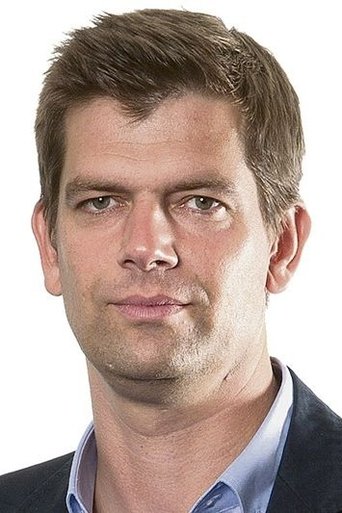
Right through Africa (2014)
After five years in Turkey, Bram Vermeulen is back at his post in Africa. Familiar territory, because between 2001 and 2009 he traveled extensively on this continent as a correspondent. The countries he visited have now changed drastically. Africa is booming, they say. But what does that mean? And what are the consequences for the people Vermeulen met and left behind at the time? In nine episodes, Bram Vermeulen travels through South Africa, Zimbabwe, Zambia and Angola and investigates the changes. He travels by train, moped and Rolls Royce, meets miners, farmers and wealthy oil barons and rediscovers the southern tip of the continent.
Country: NL
Language:
Runtime:
Season 1:

Bram Vermeulen returns after five years to a country under high tension. After the death of Nelson Mandela, South Africa is mired in mining strikes and violent protests. A young populist is increasingly stirring up discontent among the poor. Is this Mandela's legacy?

A battle is raging in South Africa over who has more right to the land: the black South African who got there first, or the white man who brought European progress. Gone are the days when this painful debate was avoided for the sake of racial reconciliation. Bram Vermeulen travels to the farmlands of South Africa, where old relationships are under high tension under the pressure of a new generation.

Zimbabwe is etched in our memories as the country of economic chaos. But disorder is not undesirable for everyone. Bram Vermeulen visits an elite that became immensely rich thanks to the crisis. He travels through the country in a Rolls Royce and sees the crisis through the eyes of the plundering class. Does Zimbabwe work?

Mugabe's government was criticized worldwide for violent land reforms that drove thousands of white farmers off their land. But now tens of thousands of black Zimbabweans farm on the redistributed land. Was Mugabe right after all?

Forty years ago, the Chinese built a train track through Zambia. They called this the trail of freedom. Bram Vermeulen travels by train through the African country to discover what became of that old friendship.

Trade is better than aid for Africa. They say. In a journey past copper thieves and mining barons in northern Zambia, Bram Vermeulen investigates the truth behind that slogan.

Bram Vermeulen travels along the old front line of a forgotten war, in the hinterland of the most expensive city in the world. How does the rest of Angola notice the oil and diamond dollars flowing into Luanda?

Angola is one of the fastest growing economies in the world. So much money is made in this former Portuguese colony that Portuguese are fleeing the crisis in their own country en masse to seek fortune in Angola. Also the so-called 'retornados' - the Portuguese who fled the country in haste in 1974 and now find a radically different country.

In Zambia, many years of Dutch development aid have yielded precious little, Bram Vermeulen discovers. Are the Chinese doing better now, under the motto 'trade, not aid'? Mongu, an area in the far west of Zambia, was called the thirteenth province of our country. From the 1970s onwards, it was teeming with Dutch development workers who wanted to bring civilization to this wet, flat area. For example, by dredging a canal, a job worth tens of millions of euros. That would make shipping possible and thus boost the entire economy. Bram Vermeulen looks at what happened with former development worker René Lourens. Not much, as it soon becomes apparent. Aid has dried up and instead of an embassy with 45 people, the Netherlands only has a small consulate with three employees in Zambia. In Mongu, people regret the end of Dutch aid.


